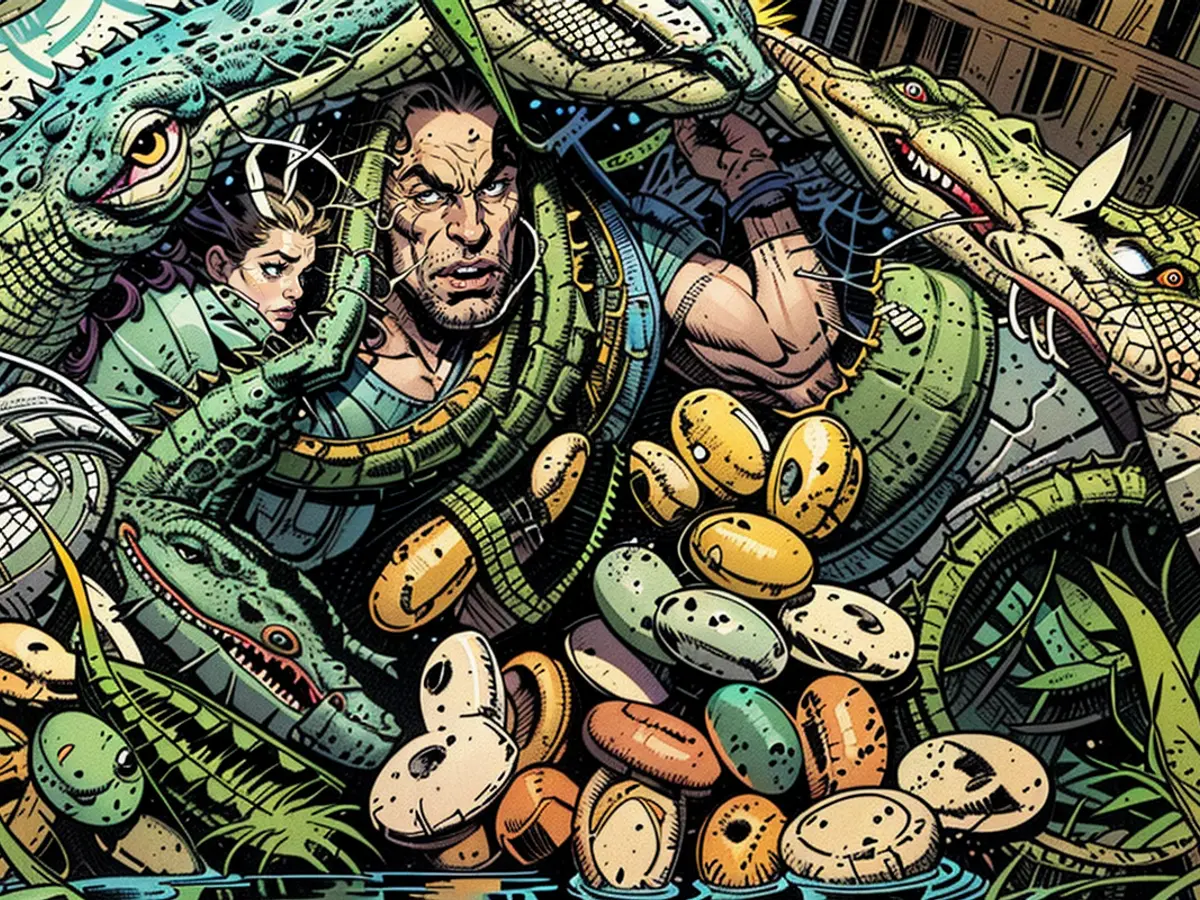Dozens of Siamese crocodiles hatched in Cambodia
The population of Siamese crocodiles continues to shrink. Worldwide, there are approximately 1000 specimens in the wild. The joy in Cambodia is great, as numerous eggs of the endangered species were found in a wildlife protection area.
In a wildlife protection area in Cambodia, conservationists discovered 106 eggs of an extremely rare crocodile species: The Siamese crocodile (Crocodylus siamensis), which is only found in parts of Southeast Asia, is listed as "critically endangered" on the IUCN Red List. Land Management Minister Dith Tina spoke of a significant success in the fight for the protection of these endangered animals.
This is the largest discovery in over 20 years that the species is still reproducing in the wild, Flora & Fauna announced. The organization works with the government to strengthen the wild population of Siamese crocodiles. Estimates suggest that there are only about 1000 wild specimens worldwide, of which 300 are in Cambodia. The discovery greatly increases the chances of survival for this reptile species, it was further reported.
The eggs were found in May in a national park in the Cardamom Mountains in southwestern Cambodia. A total of 60 baby crocodiles hatched at the end of June. The population of Siamese crocodiles has mainly decreased due to hunting and the loss of their natural habitat. The authorities are working with nature conservation organizations to revive the populations - with success. The animals have been bred in captivity for years and then released into the wild.
Upland peoples revere Siamese crocodiles
However, it is also important to provide them with a suitable habitat where they are safe from poaching and logging, said Flora & Fauna country director Pablo Sinovas. A total of 196 captive-bred Siamese crocodiles have been successfully released as part of the program since 2012. The local indigenous peoples are a great help in this, who revere the crocodiles, it was reported.
Among them, it is taboo to kill or harm Siamese crocodiles. The animals can grow up to four meters long and have a relatively wide snout. They live exclusively in freshwater such as rivers, lakes or swamps. According to IUCN, there are still specimens in the wild in Thailand, Laos, and in the Indonesian part of Borneo.
The discovery of 106 Siamese crocodile eggs in Cambodia signifies a significant natural protection for this critically endangered species, which is primarily facing decreases due to hunting and habitat loss in Asia. This international collaboration between the government and organizations like Flora & Fauna aims to provide suitable habitats for the animals, with the support of local indigenous peoples who hold the Siamese crocodiles in high esteem and consider it taboo to harm them.






